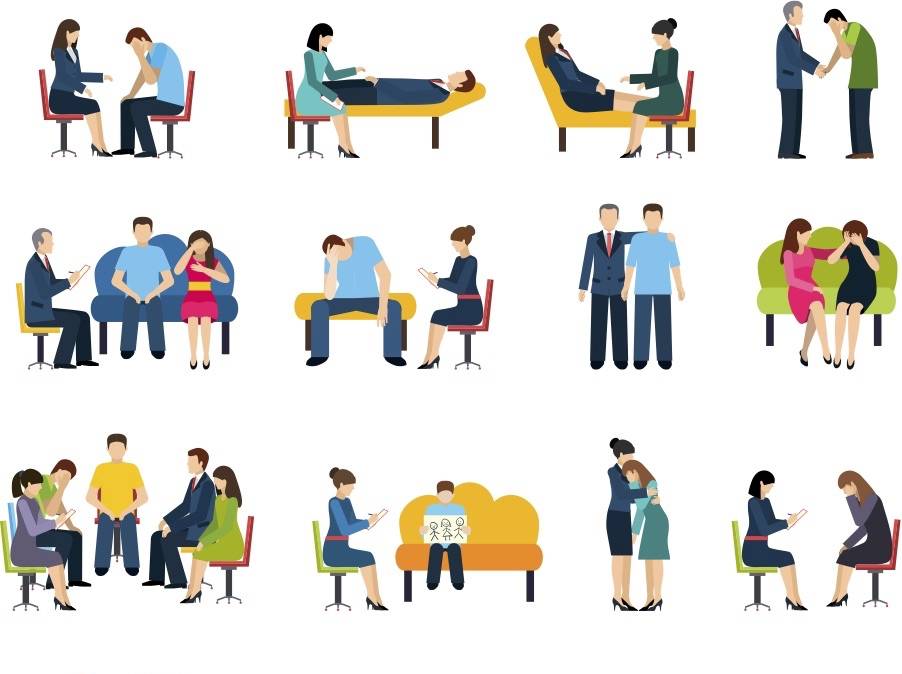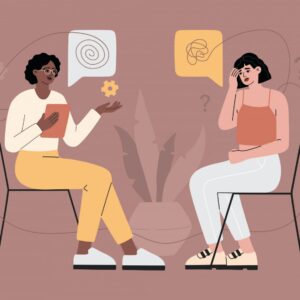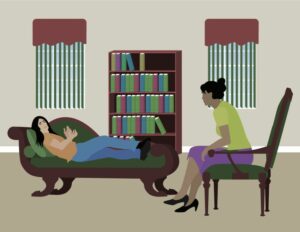In this blog post, we will discuss what therapy session is, the different types of therapy available, FAQs about therapy, and how to find the right therapist for you. We will also hear from experts about their experiences with therapy.
Contents
Understanding Therapy

Therapy is the process of talking to a professional about your thoughts, feelings, and behaviors. This can be helpful for people who are struggling with mental health issues or relationship problems. Therapy can provide you with support, guidance, and tools to help you manage your life.
When most people think of therapy, they think of mental illness. However, therapy is not just for people with mental health issues. It can be helpful for anyone who wants to improve their life.
History And Development
The history of therapy dates back to the early days of medicine. The first recorded use of therapy was in ancient Greece. Aristotle and Socrates used therapeutic techniques to help their patients. In the Middle Ages, therapists were known as alchemists. They used their knowledge of chemistry to treat mental illness.
During the Renaissance, therapy became more scientific. Doctors began to use therapy to treat physical illnesses. In the 19th century, therapists began to focus on mental illness. They developed new techniques to treat patients with mental illness.
In the 20th century, therapy became more popular. Therapists began to specialize in different areas. They also started to use different types of therapy, such as cognitive-behavioral therapy and psychodynamic therapy.
Types of Therapy
There are many different types of therapy available, including:
EMDR: This type of therapy is used to help people who have experienced trauma. It can help you process and cope with your memories so that they are less distressing.
Cognitive-behavioral therapy (CBT): CBT is a type of therapy that focuses on your thoughts and behaviors. CBT can help you identify and change negative thought patterns that contribute to your problems.
Dialectical behavior therapy (DBT): DBT is a type of therapy that helps you manage difficult emotions. It can teach you skills to cope with stress, anger, and other emotional challenges.
Psychodynamic therapy: Psychodynamic therapy is a type of therapy that focuses on the unconscious mind. It can help you understand how your past experiences may be affecting your current life.
Interpersonal therapy (IPT): IPT is a type of therapy that focuses on your relationships. It can help you understand how your relationships may be affecting your mental health.
Family therapy: Family therapy is a type of therapy that helps families deal with conflicts and problems. It can help improve communication and strengthen relationships.
Relationship Counseling: Relationship counseling is a type of therapy that focuses on your relationships. It can be used to treat relationship problems and mental health issues.
Online Therapy Vs. Onsite Therapy

There are two main types of therapy: online therapy and onsite therapy.
Online Therapy: Online therapy is a type of therapy that can be done remotely, using the internet. It can be done with a therapist who is located in another city or country. Or it can be done with a therapist who is located in the same city as you.
Onsite Therapy: Onsite therapy is a type of therapy that takes place in person. It can be done at a therapist’s office, or it can be done at a hospital, community center, or school.
NOTE: Online therapy can be a great option for people who live in rural areas or who have transportation issues. Online therapy can be done through video conferencing, chat, or email.
Removing Stigma Associated With Therapy
One of the biggest barriers to seeking therapy is the stigma that is often attached to it. Some people view therapy as a sign of weakness or think that you only need therapy if you have a mental illness.
It is important to remember that therapy is helpful for everyone, regardless of their mental health status. Therapy can be a safe and healthy way to deal with any problems or challenges you are facing.
If you are struggling with the stigma attached to therapy, please remember that you are not alone. Many people understand what you are going through and they can offer support. You can also talk to your therapist about this issue.
Asking for Therapy FAQs

What is the difference between therapy and counseling?
Therapy and counseling are both forms of talking to a professional about your thoughts, feelings, and behaviors. Counseling is typically shorter-term than therapy and focuses on specific issues. Therapy is typically longer-term and focuses on more general issues.
How do I know if therapy is right for me?
If you are struggling with mental health issues or relationship problems, therapy may be a good option for you. Talking to a therapist can help you understand your thoughts and feelings and make changes in your life.
What should I expect from therapy?
Therapy is a process of talking to a professional about your thoughts, feelings, and behaviors. You can expect to talk about what is going on in your life and how you are feeling. The therapist will provide support, guidance, and tools to help you manage your life.
How much does therapy cost?
The cost of therapy varies depending on the therapist’s location and experience. You should contact your insurance company to find out how much therapy will cost you.
Do I have to have a mental illness to go to therapy?
No, you do not have to have a mental illness to go to therapy. Therapy can be helpful for anyone who wants to improve their life.
Can I see a therapist online?
Yes, you can see a therapist online. Many therapists offer online therapy.
What if I don’t like my therapist?
If you don’t like your therapist, you can talk to your doctor about finding a new therapist. It is important to find a therapist that you feel comfortable with.
What is the success rate of therapy?
The success rate of therapy varies depending on the individual and the type of therapy. Many people find therapy to be helpful.
Finding Right Therapist

When you are looking for a therapist, it is important to find someone with who you feel comfortable. You should also consider the therapist’s experience, education, and training. You can ask your friends or family for recommendations, or you can search online for therapists in your area.
- Education: The therapist’s education is also important to consider. You want to find someone who has the proper education and training to help you with your specific issues.
- Training: The therapist’s training is also important to consider. You want to find someone who has the proper training to help you with your specific issues.
- Experience: The therapist’s experience is important to consider. You want to find someone who has experience treating the issues you are struggling with.
When you first meet with your therapist, they will ask you about your thoughts, feelings, and behaviors. They may also ask about your history and ask you to fill out some paperwork. The therapist will use this information to develop a treatment plan for you.
NOTE: If you are still not sure, you can always call a therapist and ask to speak with them for a few minutes. This will give you a chance to see if they are a good fit for you.
Hearing From Experts
“Therapy can be very helpful for people who are struggling with mental health issues or relationship problems. Therapy can help you understand your thoughts and feelings and make changes in your life.”
-Dr. John Duffy
“I think that therapy is a really great way to explore yourself and your relationships. It can be helpful for anyone who wants to better understand themselves or their loved ones.”
-Dr. Racquel Gurman
Movies And Books
If you want to learn more about therapy, there are a few movies and books that you can check out.
What About Bob?
This movie is about a man who starts seeing a therapist and becomes obsessed with him.
Theories of Psychotherapy and Counseling: Concepts and Cases
This book provides an overview of different therapy theories and how they are used in counseling.
Conclusion
If you are struggling with mental health issues or relationship problems, therapy may be a good option for you. Talking to a therapist can help you understand your thoughts and feelings and make changes in your life.
A Word From Therapy Mantra
Your mental health — Your psychological, emotional, and social well-being — has an impact on every aspect of your life. Positive mental health essentially allows you to effectively deal with life’s everyday challenges.
At TherapyMantra, we have a team of therapists who provide affordable online therapy to assist you with issues such as depression, anxiety, stress, workplace Issues, addiction, relationship, OCD, LGBTQ, and PTSD. You can book a free therapy or download our free Android or iOS app.


